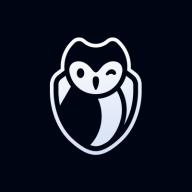

GitGuardian Platform and Check Point CloudGuard WAF compete in the realm of security solutions. Based on feature richness and ease of integration, GitGuardian seems to outperform in secret detection and rapid response.
Features: GitGuardian excels with highly accurate secret detection, identifying AWS keys and sensitive tokens. It offers low false-positive rates, crucial for internal monitoring and development environments. GitGuardian's "Dev in the loop" feature enhances remediation speed. Meanwhile, Check Point CloudGuard WAF provides powerful AI-driven threat detection, intrusion prevention systems, and detailed analytics, reducing the need for manual rule adjustments and safeguarding web applications and APIs efficiently.
Room for Improvement: GitGuardian could broaden custom identifier options and improve integration with more developer tools. Enhanced linking for recurring issues and streamlined historical scans would also be beneficial. Check Point CloudGuard WAF needs improvements in technical support responsiveness, especially for non-English speakers, and could simplify its pricing structure. Better integration with third-party tools could enhance incident response capabilities.
Ease of Deployment and Customer Service: GitGuardian offers versatile deployment options with outstanding customer support, providing proactive assistance during setup and integration. Users commend the feedback loop and customer success team. Check Point CloudGuard WAF supports flexible deployment with good support, though some users report delays in technical support responses.
Pricing and ROI: GitGuardian is valued for a reasonable pricing structure and significant ROI through efficient risk mitigation. Its flexible pricing suits both small teams and large enterprises. Check Point CloudGuard WAF's pricing reflects its advanced features and is seen as higher than competitors, yet offers comprehensive protection that users appreciate, justifying the cost.
When we are attacked, we can understand how important the solution is.
When you migrate to the cloud, it feels like saving 90% of your time.
Most of the operations happen in the background, so I do not spend much time on it.
I can certainly say that we have saved significant time and resources in terms of people and automation.
The majority of our incidents for critical detectors and important secret types are remediated automatically or proactively by developers through GitGuardian's notification system, without security team involvement.
They need to increase the number of people for 24/7 support.
They were responsive even before we committed to buying their solution.
I also received full technical support, especially during the implementation.
It effectively helps us with credentials security and has been performing satisfactorily.
I would rate their technical support a nine out of ten.
I would rate the technical support as excellent.
If I need to scale, I open a Whatsapp group with the director and the team, and we quickly proceed to do so.
They have sufficient resources, and there are no challenges from a scalability perspective.
Check Point CloudGuard WAF's scalability is very good.
In terms of scalability, I would rate it around a ten out of ten, as it handles all the repositories and commit activity we have.
I would rate it a ten out of ten for scalability.
Currently, what GitGuardian Platform is doing works effectively.
It is very stable.
It is very stable, never crashing or giving me an error that I can see.
I did not have any issues in the last three years during which I had more than ten critical services running on CloudGuard.
We set up a lot of the repository, so GitGuardian is a required check.
The SaaS platform has experienced two significant moments of downtime or instability in the last six months, requiring notices and retrospectives.
I would rate the stability of the GitGuardian Platform as excellent with no downtimes.
The provider could improve by providing better guidance and support during the configuration process.
Future releases should include better bot mitigation, behavioral anomaly detection, compliance templates, advanced threat intel integration, and streamlined multi-cloud support to boost protection and usability.
A machine learning-based adaptive mode could help the WAF learn over time and auto-tune policies.
Another thing that would be good to see is some more metrics on the usage of the GitGuardian pre-push hooks.
The self-healing activity by developers isn't reflected in the analytics, requiring us to collect this data ourselves.
We are looking for better metrics and audit data, wanting more features such as knowing which users are creating the most secrets or committing the most secrets, what repository, what directory, and who is not checking in secrets.
It is more expensive than f5, where we purchased everything as bundles, and Check Point costs more, but it is worth the money.
It is less costly than Cloudflare, Fortinet, and other vendors.
I know that its price is relatively expensive compared to other products but it gives benefits that are worth it.
Overall, the secret detection sector is expensive, but we are happy with the value we get.
It's fairly priced, as it performs a lot of analysis and is a valuable tool.
Upon implementation and evaluation with third-party penetration testing, it meets rigorous security standards required for dealing with financial institutions.
It can protect against zero-day attacks and hidden anomalies.
The solution preemptively blocks zero-day attacks and detects hidden anomalies effectively.
One of the best features of the solution is the ability to use pre-push hooks.
A high number of our exposures are remediated by developers before security needs to step in, as the self-healing playbook process engages them automatically.
GitGuardian Platform performs the capability to detect secrets in real time exceptionally, as it activates from the commit and can detect it immediately.
| Product | Market Share (%) |
|---|---|
| Check Point CloudGuard WAF | 0.5% |
| GitGuardian Platform | 1.1% |
| Other | 98.4% |

| Company Size | Count |
|---|---|
| Small Business | 32 |
| Midsize Enterprise | 19 |
| Large Enterprise | 16 |
| Company Size | Count |
|---|---|
| Small Business | 10 |
| Midsize Enterprise | 9 |
| Large Enterprise | 13 |
Check Point CloudGuard WAF offers advanced security for web applications and APIs with features such as intrusion prevention, bot prevention, and AI-driven threat detection, ensuring organizations achieve high-level protection and efficient security management.
Check Point CloudGuard WAF integrates with APIs, providing a seamless security enhancement while reducing false positives. Its scalability supports rapid deployment, valuable for companies aiming to secure resources in clouds like AWS and Azure. Enhanced threat prevention, comprehensive compliance support, and advanced threat protection methods such as SQL injection and cross-site scripting prevention are key strengths. Despite its robust capabilities, there are opportunities for improvement, such as lower costs, improved third-party tool integration, and a more intuitive interface to enhance usability.
What are the key features of Check Point CloudGuard WAF?Check Point CloudGuard WAF is predominantly applied within industries requiring stringent security standards, such as financial services, healthcare, and e-commerce. Its deployment strengthens the defense of critical APIs, facilitates compliance, and supports efficient multi-cloud security management, aligning well with evolving industry demands.
GitGuardian is a comprehensive platform focused on enhancing Non-Human Identity security by integrating Secrets Security and Secrets Observability to detect and manage secrets across development environments.
As cybersecurity threats increasingly target NHIs like service accounts and applications, GitGuardian offers a robust solution by supporting over 450 types of secrets and deploying honeytokens for additional defense. Trusted by leading organizations and developers, its monitoring and quick alert system enable effective detection and management of sensitive data, strengthening operational security across platforms.
What are the key features of GitGuardian?In the tech industry, GitGuardian is employed to safeguard APIs and sensitive credentials across code repositories like GitHub. Companies benefit from instant alerts and integrations with tools like Slack, effectively managing risks and enhancing security policies. While popular in sectors dependent on development agility, there is room for further improvement in customization and integration to meet specific industry needs.
We monitor all Application Security Tools reviews to prevent fraudulent reviews and keep review quality high. We do not post reviews by company employees or direct competitors. We validate each review for authenticity via cross-reference with LinkedIn, and personal follow-up with the reviewer when necessary.